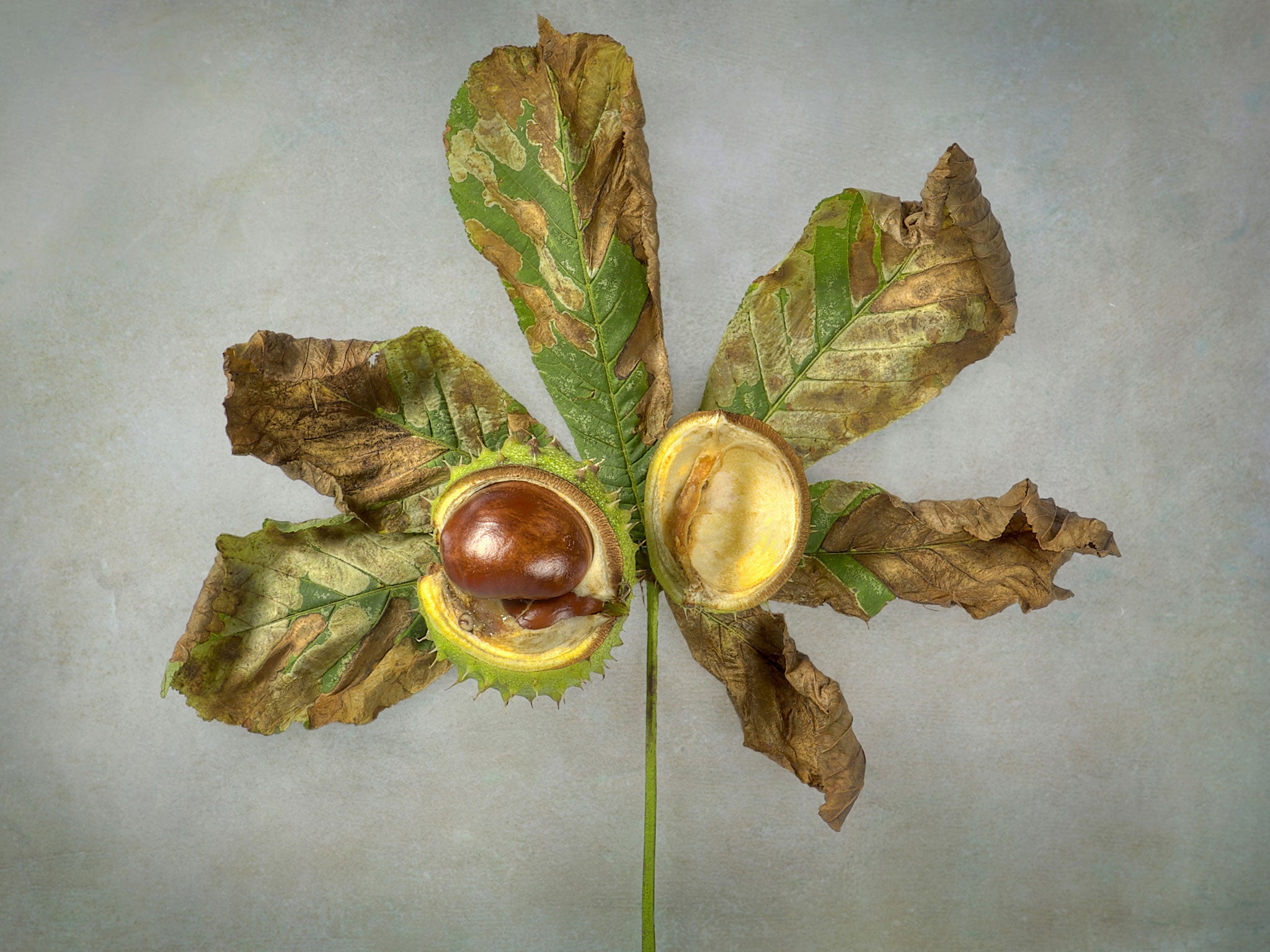UK conker trees under threat from alien invading moths as scientists say Britain’s wasps are losing the insect war
Experts say there simply aren’t enough wasps to keep the horse chestnut-munching moths at bay

The UK’s conker trees are under threat because native insects are losing the war against an alien invader.
In less than three decades the horse chestnut leaf-mining moth, Cameraria ohridella, has spread from Greece to almost the whole of Europe, arriving on these shores around 10 years ago.
The moth, which burrows through the leaves of conker trees causing them to turn brown and die, was first spotted in south London in 2002 and can now be seen across almost the whole of England and Wales.
Experts had pinned their hopes on a species of tiny parasitic wasps, related to the larger black-and-yellow variety, which use the moth’s caterpillars to lay their eggs.
But a new reported published in the online journal Public Library of Science ONE revealed that the wasps are failing to keep up with the voracious appetites and seemingly unstoppable spread of their rivals.
In what has been hailed as a success for citizen science (if not for the conker trees), thousands of children across England and Wales were enlisted to record leaf damage and insect activity in their local area.
Volunteers were asked to find a visibly damaged – and therefore infested – horse chestnut leaf, seal it in a plastic bag for two weeks, and count the number and species of insects which emerged at the end.
Worryingly for the trees, the research revealed there were far fewer wasps than hoped, and not yet enough to slow the spread of the moths.
The study was designed to assess the impact of moths in a country where they had relatively recently arrived, and experts said there was still hope that wasp numbers might yet rally in response – as has been observed in other European countries.
Lead scientist Dr Michael Pocock, from the Centre of Ecology & Hydrology in Wallingford, Oxfordshire, said: “This is the sort of science that anyone can do.
“By taking part the public are doing real science - and the publication of this scientific paper is a demonstration of how seriously citizen science is now taken by the community of professional scientists.
“It seems almost like magic for children and other people to put a damaged leaf in a plastic bag, wait two weeks and then see insects - the adult moths or their pest controllers - emerge, but making these discoveries was a valuable contribution to understanding why some animals become so invasive.”
Co-author Dr Darren Evans, from the University of Hull, said: “This work could have been done by paying research assistants to travel the country and collect records, but by inviting thousands of people to get involved we, together, were able to pull this off much more cost-effectively.”
A total of 8,000 people took part in the Conker Tree Science project between 2010 and 2011.
Subscribe to Independent Premium to bookmark this article
Want to bookmark your favourite articles and stories to read or reference later? Start your Independent Premium subscription today.

Join our commenting forum
Join thought-provoking conversations, follow other Independent readers and see their replies